 Petzlover
Petzlover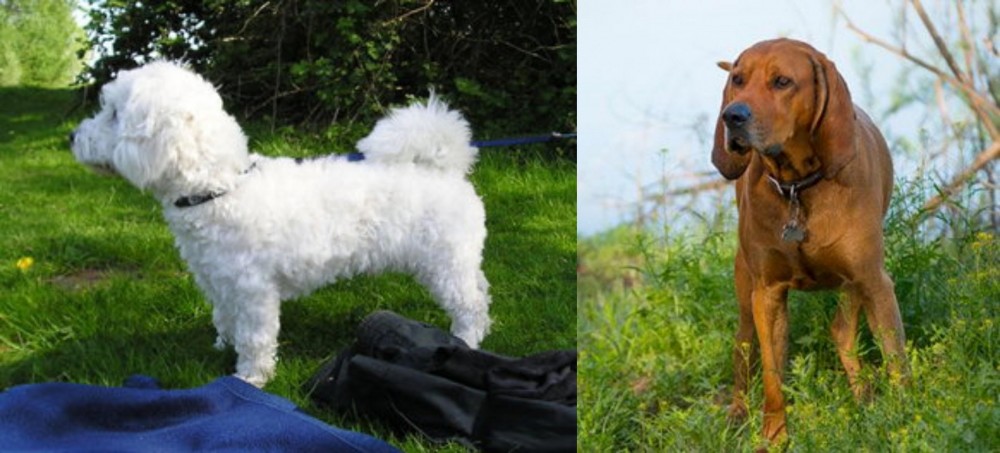 Franzuskaya Bolonka is originated from France but Redbone Coonhound is originated from United States. Franzuskaya Bolonka may grow 43 cm / 16 inches shorter than Redbone Coonhound. Franzuskaya Bolonka may weigh 27 kg / 59 pounds lesser than Redbone Coonhound. Both Franzuskaya Bolonka and Redbone Coonhound has almost same life span. Franzuskaya Bolonka may have less litter size than Redbone Coonhound. Both Franzuskaya Bolonka and Redbone Coonhound requires Low Maintenance.
Franzuskaya Bolonka is originated from France but Redbone Coonhound is originated from United States. Franzuskaya Bolonka may grow 43 cm / 16 inches shorter than Redbone Coonhound. Franzuskaya Bolonka may weigh 27 kg / 59 pounds lesser than Redbone Coonhound. Both Franzuskaya Bolonka and Redbone Coonhound has almost same life span. Franzuskaya Bolonka may have less litter size than Redbone Coonhound. Both Franzuskaya Bolonka and Redbone Coonhound requires Low Maintenance.
 The Franzuskaya Bolonka in France is known as the Tsvetnaya Bolonka in Russia and in Germany as the Bolonka Zwetna. All of these translate to Colored Bolognese. It is known as the “Pride of Russia” and was rediscovered by the Russians following the thaw of the Cold War. It is also sometimes translated as a colored lapdog.
The Franzuskaya Bolonka in France is known as the Tsvetnaya Bolonka in Russia and in Germany as the Bolonka Zwetna. All of these translate to Colored Bolognese. It is known as the “Pride of Russia” and was rediscovered by the Russians following the thaw of the Cold War. It is also sometimes translated as a colored lapdog.
The Bolonka is a rare breed in the toy category with ancestors in the Bichon Friese line. This little dog looks very much like the national dog of Cuba – the Havanese. In addition to the Bichon other small dogs in this ancestral line include the Shih Tzu, Toy Poodle, and Pekingese as well as the French, Italian and German Bolonka. They are often confused with the Bolognese as both breeds appear in various countries and have many similarities.
In all countries the common name for this dog is the Bolonka. They have a variety of names and nick names depending on the country. In addition to being the “Pride of Russia” he is called a Russian colored Bichon, Czechs call it the Bareyny Bolonsky, the Germans since 1980 have called it the Bolonka Zwetna but the Nordic Kennel Union does not recognize the Zwenta only the Russian Twetnaya.
The French version is seen to be the original with its ancestry dating back to the 18th century when Russian nobles were presented with a Bolonka by Louis XIV of France, and others migrated with the army of Napoleon to Russia. They were still known as the Bolonka of France. Small dogs were not popular in Russia due to the need for dogs that could work on farms and/or hunt. Particularly during the Soviet years, they were considered unnecessary. No Bolonkas were imported to Russia during the Soviet regime, so only localized breeding took place. The goal of breeders in the Soviet Union was to develop a toy dog, lap sized with an apartment living temperament.
During the cold war the Russians sent a pair of breeding Franzuskaya Bolonka to East Germany and they began to develop the breed there as well. At the same time the colored versions of the Bolonka were being bred. The Franzuskaya Bolonka is recognized by the Verband Dur Das Deutsche Hundewesen (VDF) while the other colored breeds are not. The white Bolonka is not recognized by the Federation Cynoloqique Internationale as a breed separate from the Bolognese but as simply another version. Individual clubs throughout the world recognized one or more versions of the Bolonka. They are thought to be the rarest within the Bichon family.
Today’s Bolonka is owed by Prince William and Princess Kate, giving the breed more publicity than it has had in many years.
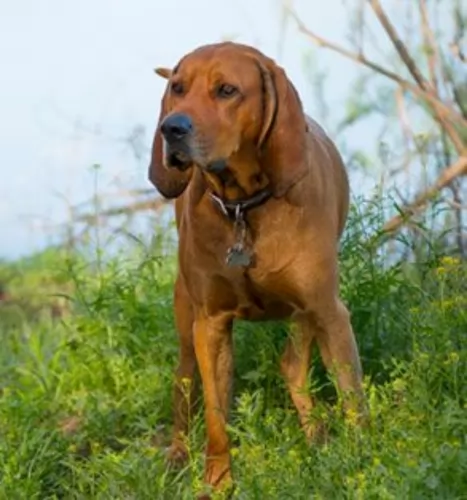 The Redbone Coonhound has always had a busy life hunting bear, deer and cougar. It is thought that this dog descends from from Bloodhounds, Foxhounds and Irish Hounds.
The Redbone Coonhound has always had a busy life hunting bear, deer and cougar. It is thought that this dog descends from from Bloodhounds, Foxhounds and Irish Hounds.
Hailing from America, this dog has been registered with the American Kennel Club since 2009.
It was during the 18th century that many European-type hunting dogs were imported to America. Over time, Southern hunters bred with stamina and this ultimately lead to the emergence of coonhounds.
 The Franzuskaya Bolonka is neither heavy boned nor fine boned. They are a toy breed with a moderate bone structure. The ears are neither long nor short and they have tails that touch the back at the tip. Like others in the Bichon family the Franzuskaya Bolonka does not shed. He is a sturdy little dog and the male has a distinct beard and moustache that the females of the breed do not. They have long coats that are wavy and curly. The Franzuskaya Bolonka is of course only white. The Russian version might be brown, red, black, wolf-gray, gray and of course white.
The Franzuskaya Bolonka is neither heavy boned nor fine boned. They are a toy breed with a moderate bone structure. The ears are neither long nor short and they have tails that touch the back at the tip. Like others in the Bichon family the Franzuskaya Bolonka does not shed. He is a sturdy little dog and the male has a distinct beard and moustache that the females of the breed do not. They have long coats that are wavy and curly. The Franzuskaya Bolonka is of course only white. The Russian version might be brown, red, black, wolf-gray, gray and of course white.
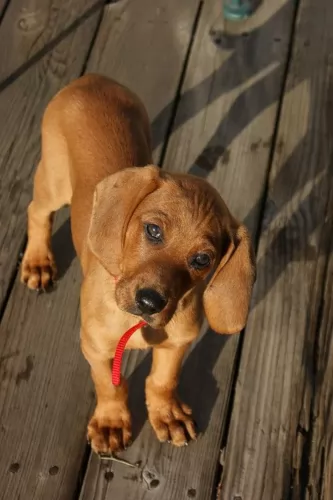 This beautiful, shiny red dog is medium-sized and stands at between 53 and 70cm at the shoulders and weighs between 20 and 32kg.
This beautiful, shiny red dog is medium-sized and stands at between 53 and 70cm at the shoulders and weighs between 20 and 32kg.
The dog’s coat is short and smooth with maybe just a tiny bit of white found around the feet and chest area. He is lean and muscular with strong, straight legs and a deep chest. The ears are floppy and the tail, traditionally docked, is often left long these days.
The paws are large and webbed and when the dog is excited, the tail is held high
The Redbone Coonhound is an affectionate dog who wants to please his owners. He just loves his human family and would be beside himself if he were locked outside day after day.
He is a social dog who should be allowed time indoors and out. They make splendid playmates for children too, and get along well with other animals in the house.
Because they’re independent and strong willed, he will need to be trained and socialized to ensure he is well mannered and obedient.
He is an active dog and will require a good bout of exercise. He is vocal, known for his baying type of bark, and training will keep this kind of baying under control. Training is also necessary as this dog is stubborn. He is intelligent enough to learn, and once trained, is gentle and calm.
 The Bolonka is great with kids, just avoid too intense play.
The Bolonka is great with kids, just avoid too intense play.
The Bolonka is a playful, lap dog with a lot of love to offer
Good adaptability great in the city in apartments and great in the country as well
They are very smart and love to learn. Being firm but beyond firm is also kind.
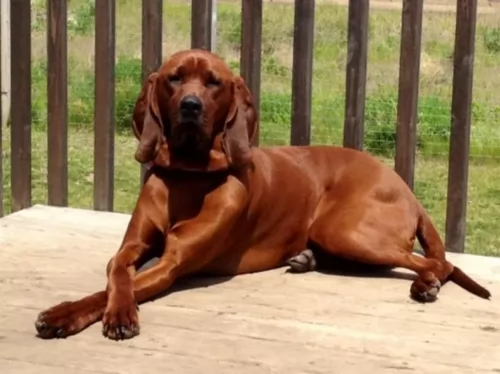 The Redbone loves the company of his human family. He is such a friendly dog,getting on well with everyone in the family, including the children and other pets.
The Redbone loves the company of his human family. He is such a friendly dog,getting on well with everyone in the family, including the children and other pets.
He is a hunting dog and always ready to be part of any activities his human family is involved in. He is gentle and easy going, and and having him in your life is guaranteed to bring in a lot of joy and sunshine.
 Medical issues are not fully documented because of the rarity of the breed and the years of isolation in the Soviet Union.
Medical issues are not fully documented because of the rarity of the breed and the years of isolation in the Soviet Union.
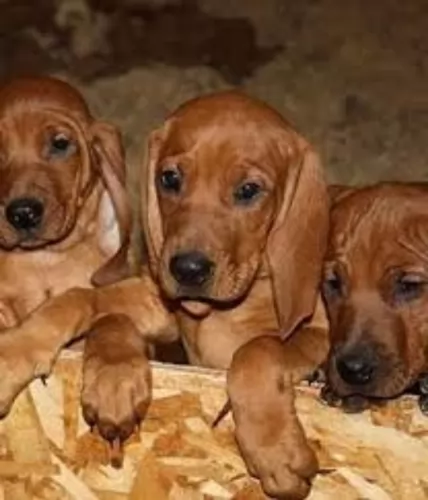 The Redbone Coonhound is generally a healthy breed that can reach 12, 13, 14 years of age if well cared for.
The Redbone Coonhound is generally a healthy breed that can reach 12, 13, 14 years of age if well cared for.
There are some common dog illnesses that this do can succumb to and which are worth knowing about as they affect so many dogs. These are cancer, bloat, skin allergies, ear infections and hip dysplasia.
If you notice that your active dog is subdued and lethargic, it is your responsibility to get your 4-legged child to the vet to be looked over.
 Feed at least 3 meals a day. Feed one fourth of a cup daily split into three meals of a high quality puppy food.
Feed at least 3 meals a day. Feed one fourth of a cup daily split into three meals of a high quality puppy food.
Feed at least 2 meals per day. Feed one half of a cup daily split into two meals of a high quality dry food.
Fairly healthy breed due to isolation during cold war
The Franzuskaya Bolonka is developed as a lap dog but that does not mean he doesn’t need daily exercise. He loves to play but play gently and not for any length of time. They like to chase balls, play hide and seek and any tricks you want to teach them.
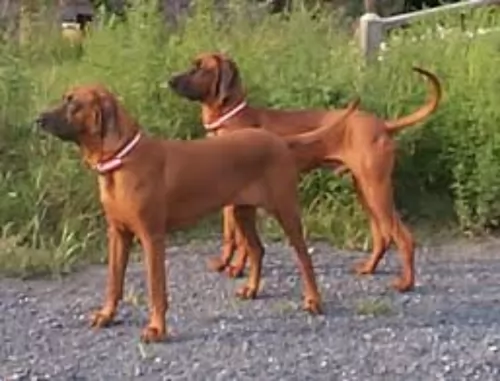 Hunting dogs such as the Redbone Coonhound will need a good deal of exercise to stay happy and healthy. The breed is best suited to the countryside or suburbs as opposed to city dwelling.
Hunting dogs such as the Redbone Coonhound will need a good deal of exercise to stay happy and healthy. The breed is best suited to the countryside or suburbs as opposed to city dwelling.
He won’t be content with just a walk every day but is the kind of dog that will want to be free from a leash and be running far and wide. When at home, involve him in some rope- and ball games.
The Redbone Coonhound isn’t going to be a dog that you have to fuss over. His short coat can be brushed twice a week to keep him looking beautifully shiny. When you brush him, make sure you check for any unusual lumps.
He has floppy ears, so look inside his ears for signs of redness and discharge. This could be an indication of an ear infection. Also check inside his mouth as he could have a rotting tooth which could be causing him a lot of pain and also be poisoning his body.
You want to ensure your beautiful Redbone Coonhound stands every chance to enjoy good health. Every dog owner should try to feed their dog the best food there is.
There are some good commercially manufactured foods on the market and these are wonderfully convenient to use for your dog. However, you want to provide him with some good homemade food too.
Dogs thrive on simplicity and consistency with their diets because then it prevents upset stomachs. Some home-cooked food such as boiled chicken, sweet potatoes, brown rice or pasta, carrots and spinach will be perfect for him.
Chop the food up finely and add it into the dry kibble once or twice a week. Raw meat can also be added in occasionally to promote good skin health. Make sure your pet is never without a constant supply of fresh, cool water.